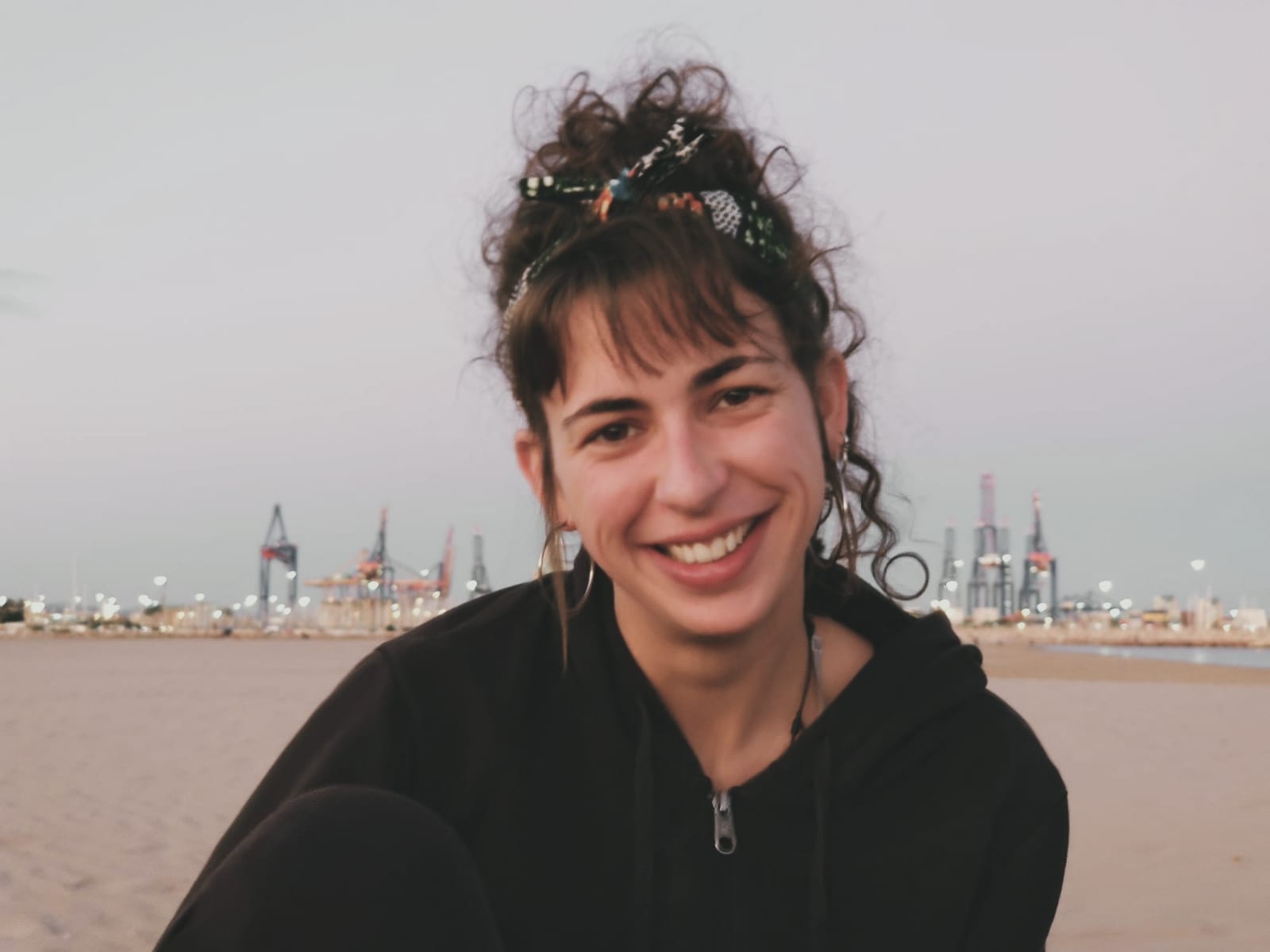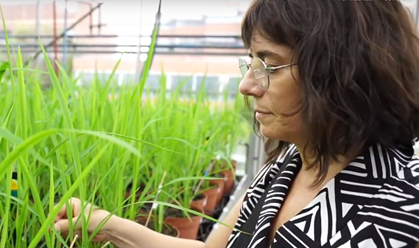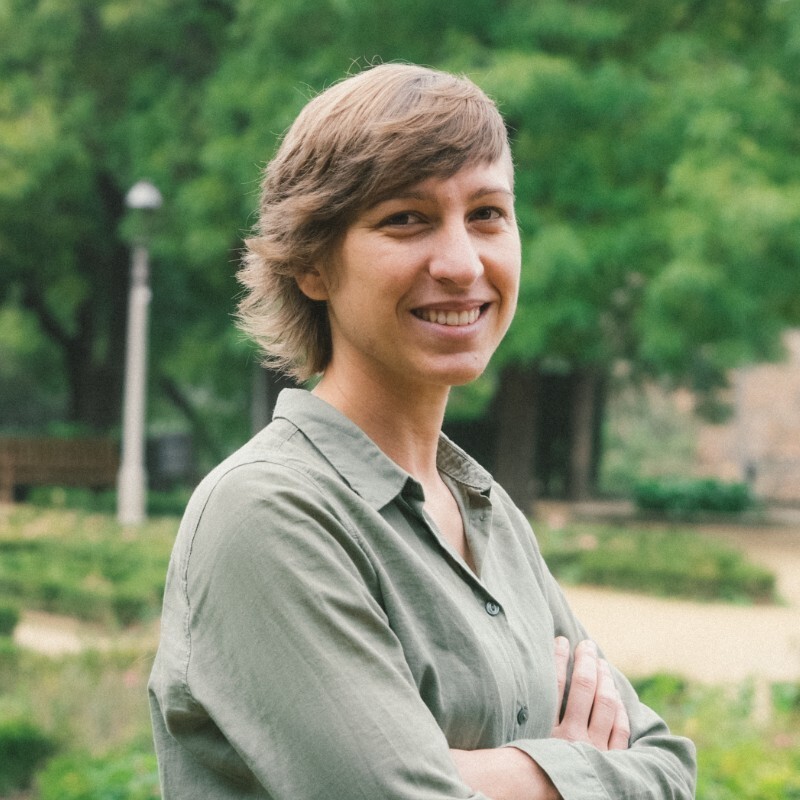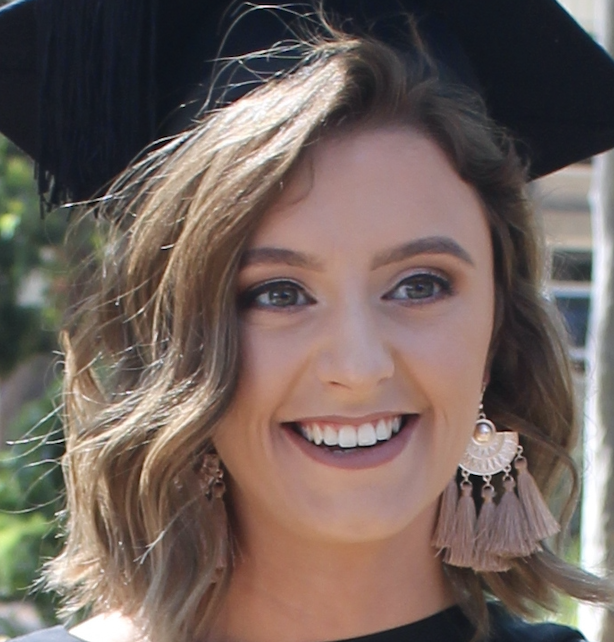 TeachMeet
TeachMeet
Date: Thursday, 27 January, 18:00-19:00 CET.
Recording:
 Webinar: Outdoor Learning: Pedagogical Approaches
Webinar: Outdoor Learning: Pedagogical Approaches
Recording:
You can download the presentation here.
Date: Thursday, 20 January, 17:00- 18:00 CET
Join the session here: https://bit.ly/LifeTerra_WebinarM2
In this webinar we will learn about what outdoor learning is and its benefits for primary and secondary schools, how to organise outdoor activities and see some practical examples.
Jari Silander will discuss about how to integrate Outdoor Learning in the school curriculum and give practical examples on how to engage students in STEM projects.
Gloria Falomir Orti will discuss about how and why we can reconnect with nature through and give practical examples on how to create an intergenerational educational garden.
Speakers:

Gloria Falomir Ortí is a social worker, environmental educator, agroecology technician and community facilitator. Member of the non-profit association Interpreta Natura. Currently coordinator and responsible for the ERA (Active Rural School) project in Vall de Almonacid. An initiative to address depopulation that offers an experiential education rooted in the territory and that values rural lifestyles. An open school that, hand in hand with the community, discovers the natural, cultural and material heritage of the municipality.
 Dr. Jari Silander is a water resource management expert from the Finnish Environment Institute. His multidisciplinary education in water resource management, economics and meteorology has supported his work of coordinating development of the national monitoring programs (MONITOR2020, 2013-2020) and involvement of several Government Key Projects, such as the outdoor education (Ihan Pihalla, 2017-2020). Related to education also Finnish Russian projects exists like the Water meets people – learn, act and influence (SEVIRA, 2018-2022) and the Sustainable use of water (Eduwater, 2018-2020).
Dr. Jari Silander is a water resource management expert from the Finnish Environment Institute. His multidisciplinary education in water resource management, economics and meteorology has supported his work of coordinating development of the national monitoring programs (MONITOR2020, 2013-2020) and involvement of several Government Key Projects, such as the outdoor education (Ihan Pihalla, 2017-2020). Related to education also Finnish Russian projects exists like the Water meets people – learn, act and influence (SEVIRA, 2018-2022) and the Sustainable use of water (Eduwater, 2018-2020).
 Webinar: How to Educate Through Tree-Planting: Activities for Climate Action
Webinar: How to Educate Through Tree-Planting: Activities for Climate Action
Date: Thursday, 13 January, 17:00- 18:00 CET
Recording:
You can download the presentation slides here.
Speakers:

Associate Professor Teresa Sauras is a Biologist in the Faculty of Biology at the University of Barcelona. Prof Teresa Sauras has focused her research primarily in soil fertility, plant physiology and forest ecology. She uses the knowledge from basic research to develop nature-based solutions to cope with environmental issues. Specifically, land degradation, global change and ecological restoration. As a lecturer at the University of Barcelona, she teaches the units “Soil Science” and” Forest management” in the Environmental Sciences degree, and “Diagnosis of Ecosystems” in the Ecology, Management and Restoration of Natural Environment master’s degree. Prof Teresa Sauras also lends her environmental expertise to assist in species selection, land management and educational projects. Key issue in Life Terra is to plant the right tree in the right place. Teresa’s role in the project is to provide with the best scientific knowledge in ecosystem and landscape restoration, including the scientific content of the education and training materials produced by the project.
 Aroa Gregori (Education Coordinator) works as a coordinator of the Education Working Group at the Life Terra Foundation. She is also involved in the Implementation of the Life Terra project in Spain, organising and leading tree-planting events with citizens and schoolchildren at Volterra Ecosystems. Training volunteers, known as Terra Leaders, to lead tree-planting events in Spain is also one of her main tasks in the project. Aroa has a background on Biotechnology, Environmental Management, and Environmental Education. Her interest is to transfer scientific (and traditional) knowledge to society for sustainable management of natural resources and for inspiring “eco-responsible” lifestyles in all generations.
Aroa Gregori (Education Coordinator) works as a coordinator of the Education Working Group at the Life Terra Foundation. She is also involved in the Implementation of the Life Terra project in Spain, organising and leading tree-planting events with citizens and schoolchildren at Volterra Ecosystems. Training volunteers, known as Terra Leaders, to lead tree-planting events in Spain is also one of her main tasks in the project. Aroa has a background on Biotechnology, Environmental Management, and Environmental Education. Her interest is to transfer scientific (and traditional) knowledge to society for sustainable management of natural resources and for inspiring “eco-responsible” lifestyles in all generations.
 Chrystal Moore is a Predoctoral Researcher at the University of Barcelona where she is currently obtaining her PhD in the department of Evolutionary Biology, Ecology, and Environmental Sciences. Her PhD is through the EU-funded Life Terra project which aims to empower people to take impactful climate action through citizen planting events to plant 500,000 trees by 2025. Chrystal works in the intersection of social and environmental sciences, analysing behaviour change and effective communication of environmental issues like climate change. Her previous experience was as a science communicator in various scientific fields—most recently, sustainability. Chrystal’s passion for maintaining the natural environment started as a child in her rural Australian home, while marvelling at the beauty of native flora and fauna.
Chrystal Moore is a Predoctoral Researcher at the University of Barcelona where she is currently obtaining her PhD in the department of Evolutionary Biology, Ecology, and Environmental Sciences. Her PhD is through the EU-funded Life Terra project which aims to empower people to take impactful climate action through citizen planting events to plant 500,000 trees by 2025. Chrystal works in the intersection of social and environmental sciences, analysing behaviour change and effective communication of environmental issues like climate change. Her previous experience was as a science communicator in various scientific fields—most recently, sustainability. Chrystal’s passion for maintaining the natural environment started as a child in her rural Australian home, while marvelling at the beauty of native flora and fauna.
Connection detailsThese events will take place via Microsoft Teams Live Events. You can join a Microsoft Teams Live event by using an invite link which will be shared with you before the event. You can then launch or download the Teams app, or simply join using your web browser (no download required). The easiest way is to join anonymously (no account or sign in required). Alternatively, if you have an educational license, you can sign into your Microsoft account. Here, you can find more information on how to join a Microsoft Teams Live event.As an attendee of a live event in Teams, you can watch live events and participate in the moderated Q&A, but you cannot share audio or video. Please note that this Microsoft Teams service allows audio and other information sent during the session to be recorded, which may be discoverable in a legal matter. By joining this session, you automatically consent to such recordings. If you do not consent to being recorded, discuss your concerns with the host or do not join the session. The recording will be shared in the current section shortly after the event. |

